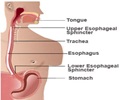Lack of a specific bacterium in the gut may be a cause of Cohn’s disease, an inflammatory gastrointestinal disorder.
Lack of a specific bacterium in the gut may be a cause of Cohn’s disease, an inflammatory gastrointestinal disorder, according to a team of French researchers.
Researchers from the Institut National de la Recherche Agronomique have highlighted the bug, Faecalibacterium prausnitzii, which they show secretes biochemicals that reduce inflammation.The researchers have already shown that patients with Cohn’s disease have a marked deficiency in bacteria from the Clostridium leptum group.
Now, their latest study shows that F. prausnitzii, a major component of this group, accounts for a large part of the deficit.
The researchers found that Cohn’s patients who underwent bowel surgery were more likely to experience a recurrence of the condition if they had low levels of F. prausnitzii.
And in experiments on cultured cells, they showed that liquid in which F. prausnitzii had been grown provided an anti-inflammatory effect.
According to researchers, if the ongoing animal trials prove successful, human patients could benefit from a probiotic treatment with F. prausnitzii.
Advertisement
"It would be interesting to see how this finding relates to the emerging body of evidence looking at genetic changes in some patients with Cohn’s disease, with the known abnormal gene being one that codes for the body’s ability to recognise foreign bacteria," BBC quoted Emmanuel, as saying.
Advertisement
Source-ANI
SRM/SK













